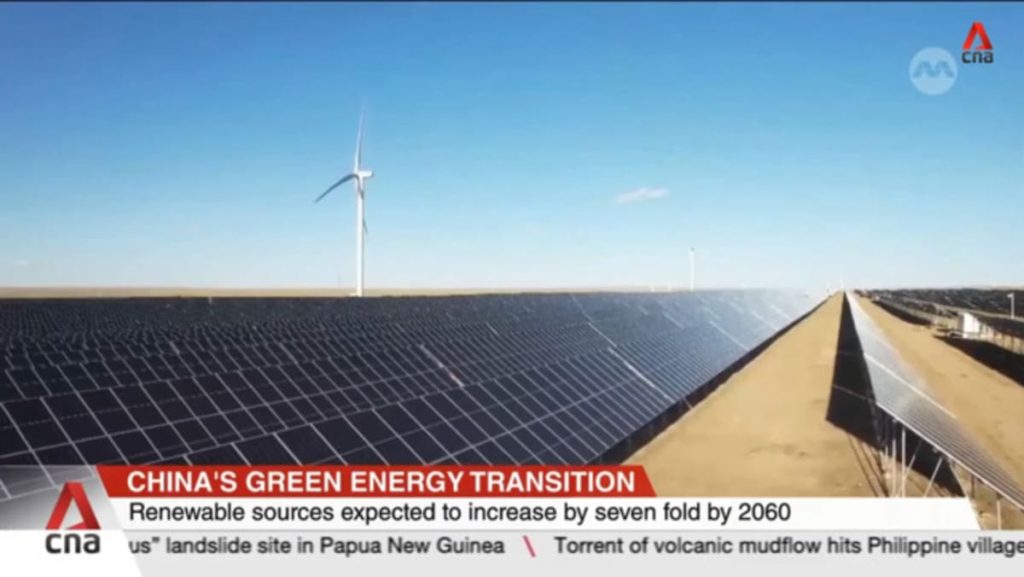CNA’s East Asia Tonight recently covered China’s ambitious goal of achieving carbon neutrality by 2060, a pledge made by President Xi Jinping at the United Nations General Assembly in September 2020. The program discussed the significance of this commitment and its implications for China’s economy, society, and the global fight against climate change. Achieving carbon neutrality means balancing the amount of carbon dioxide released into the atmosphere with the amount removed or offset through measures such as carbon capture and reforestation. This target is part of China’s broader climate goals, including peak carbon emissions by 2030.
The program explored the challenges and opportunities that China faces in transitioning to a low-carbon economy. China is the world’s largest emitter of greenhouse gases, primarily due to its heavy reliance on coal for energy production. To achieve carbon neutrality, China will need to drastically reduce its reliance on fossil fuels and ramp up investments in renewable energy sources such as solar and wind power. This transition will require significant policy changes, technological advancements, and cooperation between the government, businesses, and society.
One of the key implications of China’s carbon neutrality pledge is its potential to drive global climate action. As the world’s largest emitter of greenhouse gases, China’s commitment to achieving carbon neutrality sends a strong signal to other countries to also step up their climate efforts. By setting a clear target and timeline for reducing emissions, China is showing leadership in the fight against climate change and encouraging other countries to follow suit. This could help to build momentum towards achieving the goals of the Paris Agreement and limiting global warming to well below 2 degrees Celsius.
The program also highlighted the potential economic benefits of China’s transition to a low-carbon economy. Investing in renewable energy and other green technologies can create new opportunities for innovation, job creation, and economic growth. By leading the way in clean energy development, China can position itself as a global leader in the growing green economy. This transition could also reduce the country’s reliance on imported fossil fuels and improve air quality, leading to better public health outcomes and overall quality of life for its citizens.
However, achieving carbon neutrality by 2060 will not be without challenges. The program discussed some of the obstacles that China will need to overcome, including the high costs of transitioning to a low-carbon economy, potential resistance from vested interests in the fossil fuel industry, and the need for strong enforcement mechanisms to ensure compliance with emissions targets. China will also need to address issues such as energy security, grid integration, and the social impacts of transitioning away from coal-dependent industries in regions that rely heavily on fossil fuels.
In conclusion, CNA’s East Asia Tonight provided an in-depth analysis of China’s quest to achieve carbon neutrality by 2060 and its implications for the country and the world. While the transition to a low-carbon economy will pose challenges for China, it also presents opportunities for economic growth, global leadership in climate action, and a cleaner, healthier environment for its citizens. By setting ambitious targets and driving innovation in clean energy technologies, China has the potential to play a key role in the fight against climate change and inspire other countries to take bold action to protect the planet for future generations.


